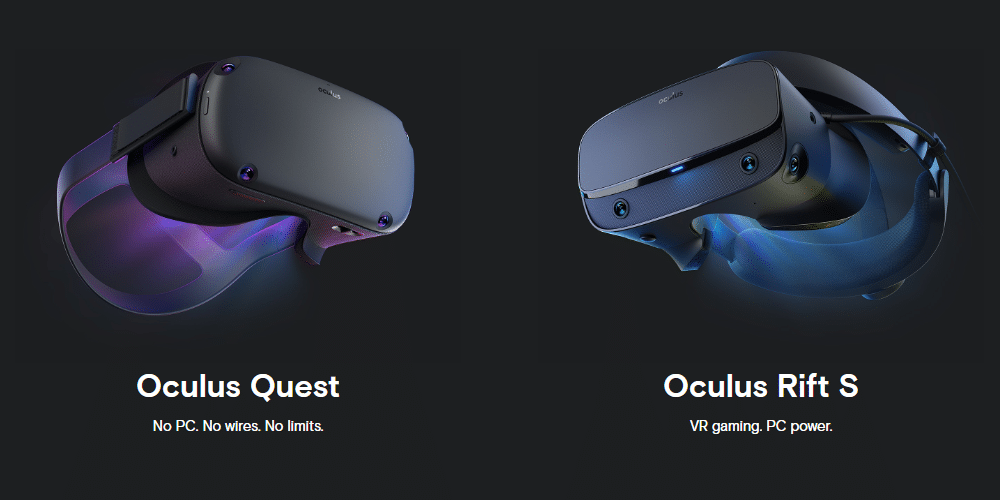Meta confirmed that Quest 3 owners have higher retention than owners of its previous headsets.
Industry speculation and analysis often focuses on headset unit sales, but what really matters to both Meta and developers is how many buyers actually regularly use the headset instead of leaving it on a shelf or in a drawer. By March 2023 Meta had sold nearly 20 million Quest headsets, and five months earlier 6.37 million owners reportedly actually used their headset that month.
At GDC 2024 this week Chris Pruett, Meta’s Director of Content Ecosystem, advised developers that Quest 3 owners return to continuously use apps at a higher rate.
Back in 2019 John Carmack said that the original Quest had higher retention than any previous Oculus headset, including the PC-based Rift and Rift S.
Carmack: Quest Is ‘By Far Our Most Retentive Hardware’, Rift S Surpasses Rift
Facebook’s new VR headsets are already seeing impressive retention, according to John Carmack. During his keynote speech at Oculus Connect 6 today, Carmack announced that Oculus Quest is “by far” Facebook’s most retentive hardware. The Oculus Rift S, however, has already surpassed the original Rift in terms of

There are a number of possible explanations for Quest 3’s higher retention, and the answer may even be a combination of multiple.
It could be due to the higher quality of experience delivered by the pancake lenses and more powerful chipset. Apps and games load faster, look sharper and clearer, and are sometimes more graphically detailed. They also often run at higher refresh rate, meaning they feel smoother and have less chance of making the user feel sick.
It could also be due to the improved passthrough. Quest 3’s passable quality color view of the world lets owners interact with and stay aware of their surroundings without taking the headset off, and makes using the browser and watching YouTube more widely appealing.
There could also be a degree of selection here. People who are more engaged with VR are more likely to upgrade to Quest 3, and people who are willing to spend $500 or $650 on a headset may be more likely to continue to use it than those who paid less.
Regardless of the exact reasons, this news is evidence that the retention problem is not inherent to XR headsets, and improved hardware over time can solve it.
- SEO Powered Content & PR Distribution. Get Amplified Today.
- PlatoData.Network Vertical Generative Ai. Empower Yourself. Access Here.
- PlatoAiStream. Web3 Intelligence. Knowledge Amplified. Access Here.
- PlatoESG. Carbon, CleanTech, Energy, Environment, Solar, Waste Management. Access Here.
- PlatoHealth. Biotech and Clinical Trials Intelligence. Access Here.
- Source: https://www.uploadvr.com/quest-3-higher-retention-meta/
- :has
- :is
- :not
- 20
- 2019
- 2023
- 2024
- a
- According
- actually
- advised
- already
- also
- analysis
- and
- announced
- answer
- any
- appealing
- apps
- ARE
- At
- aware
- BE
- both
- browser
- but
- buyers
- by
- CAN
- carmack
- Chris
- clearer
- color
- combination
- CONFIRMED
- Connect
- content
- continue
- continuously
- could
- Degree
- delivered
- detailed
- developers
- Director
- due
- during
- Earlier
- ecosystem
- engaged
- Even
- evidence
- exact
- experience
- explanations
- far
- faster
- feel
- five
- focuses
- For
- Games
- had
- Hardware
- Have
- Headset
- headsets
- here
- higher
- his
- How
- However
- HTTPS
- impressive
- improved
- in
- Including
- inherent
- instead
- interact
- IT
- ITS
- John
- john carmack
- Keynote
- leaving
- lenses
- less
- Lets
- likely
- load
- Look
- MAKES
- Making
- many
- March
- Matters
- May..
- meaning
- Meta
- million
- Month
- months
- more
- most
- multiple
- nearly
- New
- new VR
- news
- number
- Oculus
- oculus connect
- Oculus Quest
- of
- off
- often
- on
- or
- original
- original quest
- our
- over
- owners
- paid
- pancake
- pancake lenses
- passthrough
- People
- plato
- Plato Data Intelligence
- PlatoData
- possible
- powerful
- previous
- Problem
- quality
- quest
- quest 3
- Rate
- really
- reasons
- regularly
- retention
- return
- rift
- Run
- s
- sales
- seeing
- selection
- Shelf
- smoother
- SOLVE
- sometimes
- speculation
- speech
- spend
- stay
- surpassed
- surpasses
- taking
- terms
- than
- that
- The
- the world
- their
- they
- this
- this week
- those
- time
- to
- today
- unit
- upgrade
- UploadVR
- use
- User
- using
- View
- vr
- VR headsets
- watching
- week
- What
- WHO
- widely
- willing
- with
- without
- world
- XR
- XR Headsets
- youtube
- zephyrnet













